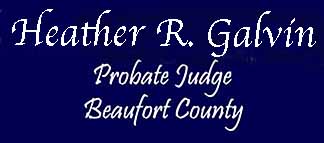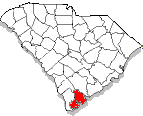
Estate Administration
Having jurisdiction over all matters related to decedents' estates, the Probate Court records decedents' wills and admits them to probate, appoints personal representatives for decedents' estates, and oversees the administration of such estates by the personal representatives. The Court also has jurisdiction to approve wrongful death and survival action settlements, where no lawsuit has been filed in another court.
Most wills are probated and personal representatives appointed in informal proceedings, without prior notice and requiring no court appearance. However, formal proceedings -- requiring advance notice to all interested persons and a hearing before the Court -- may be necessary in some cases, for example: to determine whether a decedent left a valid will or died intestate (see "Common Terms"); where a purported will has been damaged, destroyed or lost, or its validity is contested; to determine a decedent's heirs; where one seeking appointment as a personal representative lacks statutory priority for appointment, or where there are conflicting applications/petitions for appointment; etc.
After a personal representative is appointed, he/she is required, among other things, to give notice of the appointment (and probate of a will, if applicable) to all interested persons (see "Common Terms"); to file an inventory and appraisement of the estate's Probate assets; and -- after all estate debts/expenses have been paid, or otherwise resolved properly, and all assets distributed -- to file an accounting and related estate-closing documents with the Probate Court. Forms for all such estate administration documents, and others mentioned below, are available on-line at www.sccourts.org.
More abbreviated, or "summary," administration of an estate is possible if the same person is both sole heir or devisee and sole appointed personal representative of an estate, or if the value of the entire probate estate does not exceed $25,000 and exempt property (see "Common Terms"), funeral and estate administration expenses, and medical expenses of the decedent's last illness. In such cases, after giving notice to creditors and filing an inventory and appraisement of the estate, the appointed personal representative(s) may immediately disburse and distribute the estate to the persons entitled thereto, and file a closing statement under S.C. Code Section 62-3-1204. Also, if the value of the estate does not exceed $25,000, less liens and encumbrances, the decedent's successor(s)(see "Common Terms") may collect the estate's assets by affidavit, pursuant to Code Section 62-3-1201, without probate of a will or appointment of a personal representative.
PLEASE NOTE: The probate process can be simple or complicated, depending on various factors, including: whether or not there is a will and/or trust; the size of the estate and nature of its component parts (types of assets and forms of ownership); whether or not the estate is subject to taxation; the number of estate beneficiaries; the decedent's marital status; whether the estate's assets are located in more than one county, state or country; etc. In this regard, it is important to keep in mind that the law prohibits the Probate Judge or Court staff from rendering legal advice. Therefore, it is usually advisable to seek legal counsel and assistance in handling probate matters. The South Carolina Bar's Lawyer Referral Service (800-868-2284 from inside SC; 803-799-7100 from outside SC) can provide assistance in locating an attorney.
